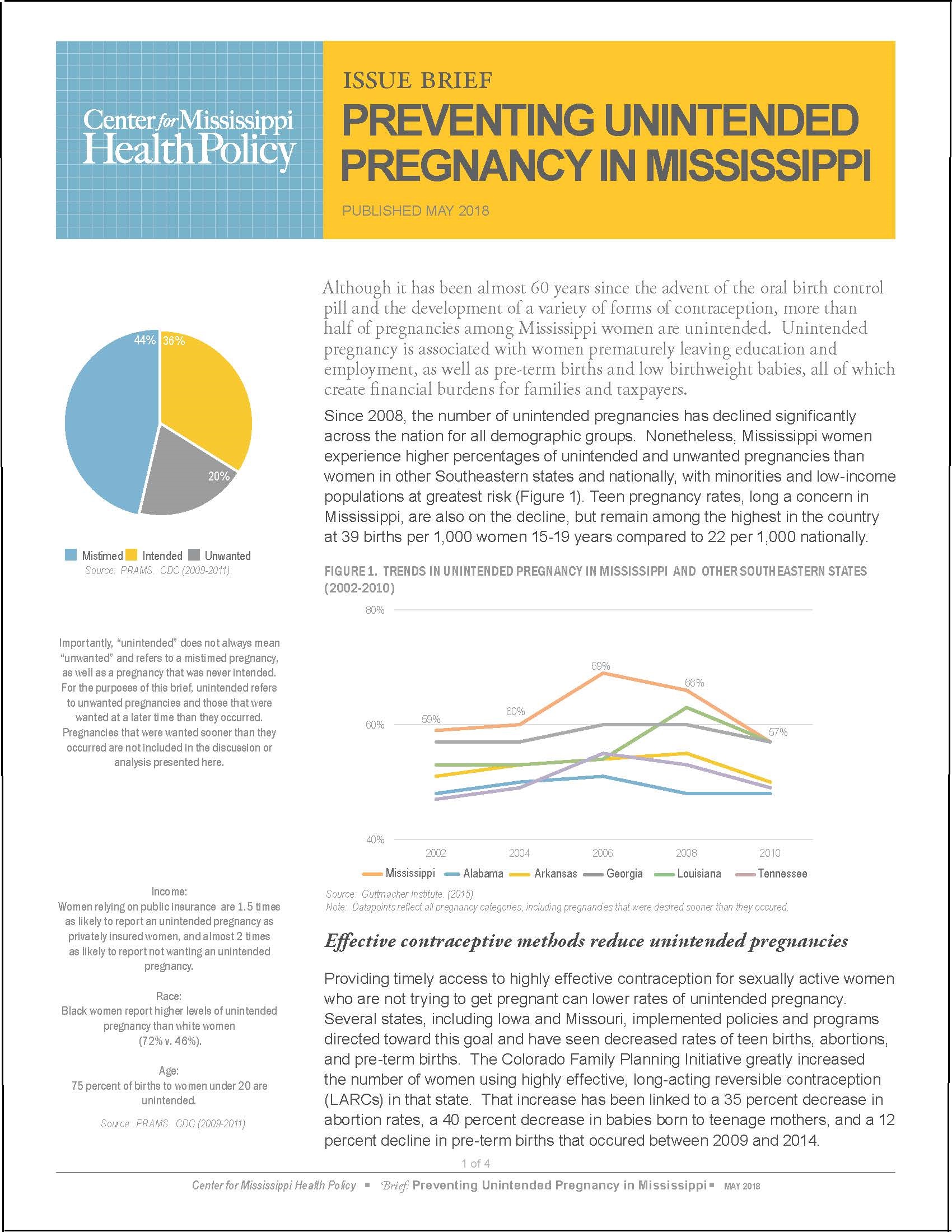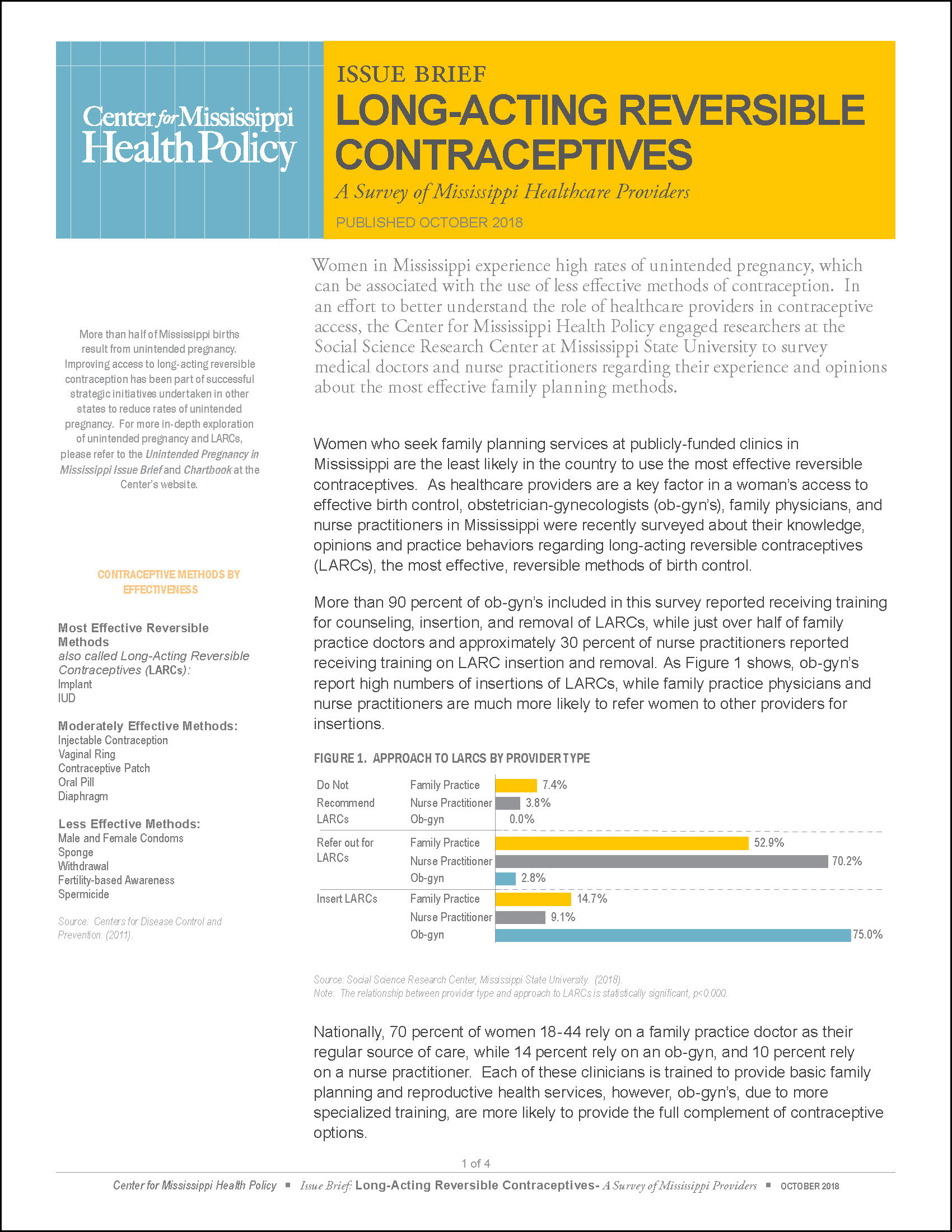Wednesday, January 15th, 2020
The Medicaid Family Planning Waiver:
By Eden Blackwell
- Contraception
- Family Planning Counseling
- STD/STI Testing and Treatment
- Preventive Reproductive Health Screenings
- Voluntary Sterilization
Since the early 2000’s the United States experienced a rise in the number of preventable pregnancy-related deaths as well as maternal and infant illness despite broader access to healthcare through insurance, managed care, and health educators. Mississippi has one of the highest rates of maternal and infant mortality in the nation. Many medical and public health interventions are focused on improved care for women during and immediately after pregnancy, including full Medicaid coverage for low-income pregnant women and initiatives to improve clinical care and identify women with increased risk of complications. However, policies and interventions aimed at improving health of women before they become pregnant are also critically important to improving both maternal and child health outcomes.
- Reduction in unintended pregnancy rates
- Increased time periods between pregnancies
- Identification and treatment of illness that impacts reproductive health including STDs and cervical cancer
The Mississippi Medicaid Family Planning Waiver (FPW) is just such a policy, which, when used effectively, can support the health of eligible women and mothers before and between pregnancies. Through family planning and reproductive health services, the program aims to reduce unintended pregnancies and repeat teen births and increase the time between births (18 months or longer is recommended) for women enrolled in the program. Delaying pregnancy until a woman is physically healthy increases the likelihood of good birth outcomes like full term deliveries and healthier birth weights and promotes good maternal health for women with complicating health conditions like diabetes or hypertension which can be brought under control prior to pregnancy.
Thanks to a 90% federal match, program costs are low relative to the long-term expense of even a handful of premature births. However, the Family Planning Waiver may be underutilized in Mississippi. Since 2009 enrollment has grown, but in recent years the percentage of total program enrollees who used at least one covered service was less than 70%. Enrollees who didn’t access any service accounted for as many as 16,200 women in 2018 alone. That is a substantial number of women and their families who would benefit from not only medical guidance but also time to prepare for good health in pregnancy.
Twenty percent of delivering mothers covered by Medicaid in 2018 had at least one potentially complicating risk factor, and 14% of all babies in the state were born prematurely. Considering the potential health benefits of well-planned pregnancy for Mississippi mothers and babies, as well as cost-savings to the State, which pays for more than 60% of all births, this is a program well worth maximizing through full enrollment and robust utilization.
For further reading on the broader health impacts of family planning, consider more of the Center’s writing on Unintended Pregnancy, Infant Mortality, and Contraceptive Counseling.




